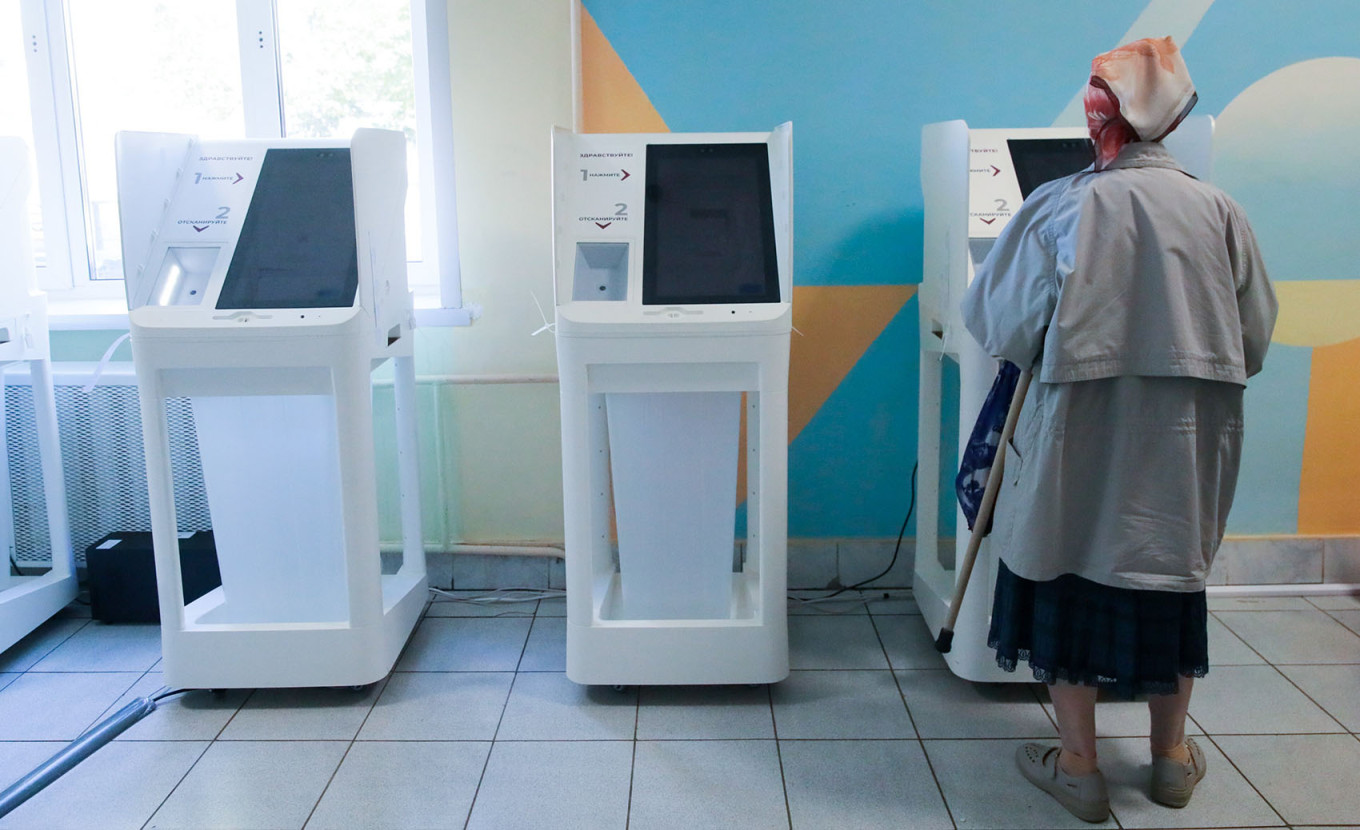
Residents of 81 federal subjects of Russia will vote in regional and municipal elections starting Friday.The elections mark the second timethis year that Russians are heading to the polls following the March presidential election.
That vote, which saw Vladimir Putin win a fifth term virtually unchallenged, was marred by widespread reports of vote tampering, restrictions on monitors and pressure on voters.But unlike the presidential campaign, Russian media coverage of this years regional elections has been scarce likely the result of a deliberate government strategy of decreasing voter turnout to a bare minimum of loyal voters, an analysis published by independent election watchdog Golos suggests.Golos analysts believe that the Kremlin is betting on mobilizing a relatively small number of voters working in the government sector and demotivating all the rest to ensure a smooth victory for its candidates.To help you understand what else is expected in the upcoming September elections, The Moscow Times has gathered everything known about the vote so far:What will the voting look like?Multi-day voting, which was first introduced across Russia during the Covid-19 pandemic, will be implemented in most regions for the September 2024 elections.
The majority of voters will have two or three days to cast their ballots depending on the region.Some regional electoral commissions, including in the republics of Chechnya, Tatarstan and Sakha (Yakutia), have chosen to hold voting on one day on Sunday.Vasily Kuzmichenok / Moskva News AgencyTwenty-five regions will allow residents to vote online via the state portal Gosuslugi, while election officials in Moscow have scrapped paper ballots altogether in favor of online voting.Independent observers have long argued that extended voting periods and online voting make voter fraud more likely, as it becomes harder for independent monitors and poll workers to do their jobs.Meanwhile, the CEC advised authorities in six southern Russian regions near Ukraine and in occupied Crimea to limit access to online broadcasts from polling stations, citing public safety concerns.Governor electionsResidents of 21 regions, including the city of St.
Petersburg, will vote for their governors.Among these, the Far East Zabaikalsky region, the Siberian republic of Altai and the southern republic of Kalmykia stand out as some of the most troublesome regions for the Kremlin.The ruling United Russia party has struggled to secure strong wins for its candidates in these regions in the past and incumbents hoping for reelection remain largely unpopular among local populations and elites, according to Golos.The Urals republic of Bashkortostan will also be under the Kremlins close watch as Moscow-backed incumbent Radiy Khabirov stands for reelection in the wake of the January protests in support of jailed activist Fayil Alsynov.Coupled with high numbers of war casualties in Ukraine and a slew of recent corruption scandals involving Khabirovs inner circle, those protests forced the incumbents approval ratings to plummet.But as in most other regions, the Kremlin mitigated the possibility of a potential blow in Bashkortostan by not allowing a single independent candidate on the ballot.Gubernatorial elections in the Republic of Bashkortostan.CEC of the Republic of BashkortostanRegional parliament electionsMembers of regional parliaments will be chosen across 11 regions, including the capital Moscow, the republics of Tatarstan and Tyva and the Khabarovsk region.This years election will see the participation of a record-low number of political parties with an average of 6.2 parties represented on the ballot, according to Golos.Golos said this worrying statistic is a direct result of an unprecedented scale of repression faced by independent politicians regardless of their political views.[A politician] can be declared a foreign agent or convicted of extremism to be removed from the elections, Golos wrote in an analytical report published last month.And if they still [manage to] register and win, there isthe possibility of being declared a foreign agent and deprived of his mandate a couple of weeks after the elections, the watchdog said.Municipal electionsElections for city mayors and city parliaments will take place across 22 regions.Abakan, the capital of the Siberian republic of Khakassia, and Anadyr, the capital of the Chukotka autonomous district, are two of only four Russian cities where mayors are still chosen through direct election.Mayoral elections had also been set for Ulan-Ude, the capital of the Siberian republic of Buryatia, but the regions parliament scrapped the procedure in favor of the council electors system in March.In St.
Petersburg, where 1,560 seats in the citys Municipal Council are up for grabs, candidates running from so-called systemic opposition parties namely the Communist Party (CPRF) and the social-liberal Yabloko party were barred from registering en masse.And while CPRF managed to get 25% of its original pool of candidates onto the ballot, Yabloko will not have any representation in this years Municipal Council race.Occupied Ukrainian and Russian territoriesIn annexed Crimea, Kremlin-installed head Sergei Aksyonov will stand for reelection and members of the regional parliament and the legislative assembly of the Crimean port city of Sevastopol its own federal subject will be voted in.The Kremlin refused to cancel voting in the Kursk border region, where Ukrainian forces have been carrying out a bold incursion for more than a month, and where Putin appointee Alexei Smirnov is seeking to secure his mandate as governor.The CEC instead extended the voting period to 10 days and is supplying local election officials with bulletproof vests and helmets.Kursk regional authorities announced Thursday that nearly 27% of eligible voters have already cast their ballots in the governor election.

 6
6






